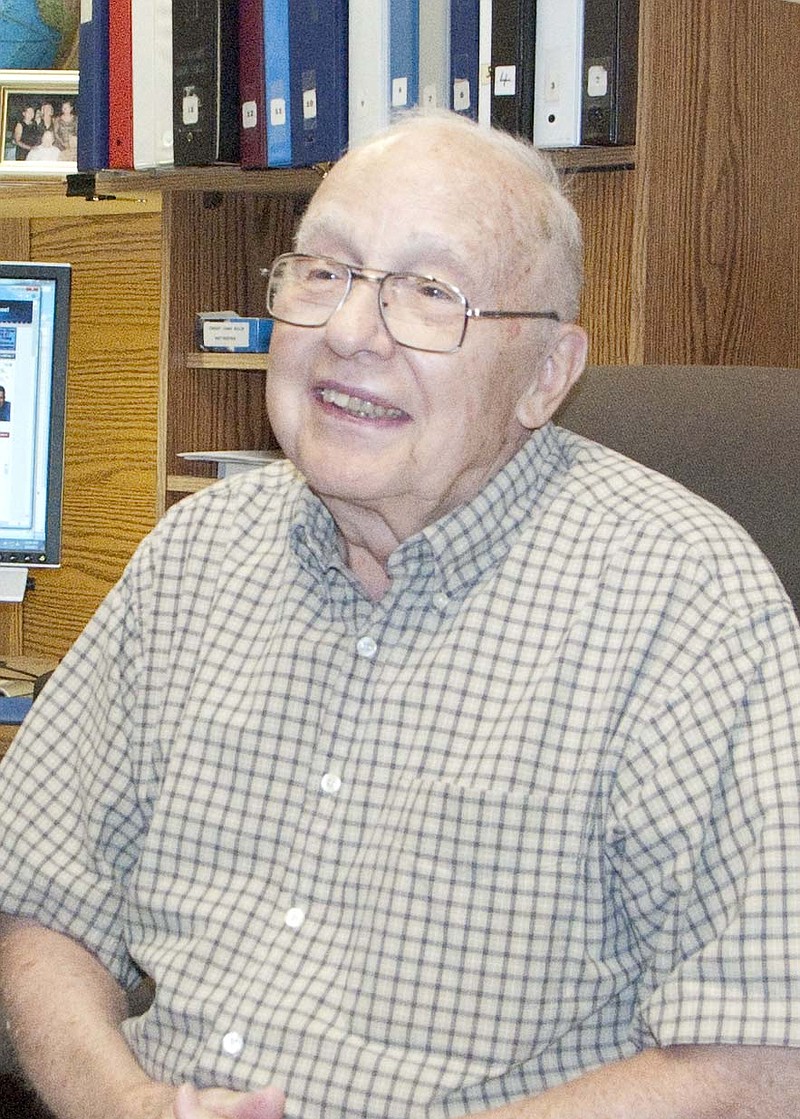Upon his graduation from Meta High School in 1946, Bernard Schanzmeyer had a low draft number and believed he would be called to serve in World War II. But the war soon ended, so too did the draft, and the young man began his career working at his father's car dealership.
For the next few years, Schanzmeyer worked for the business as a mechanic, in the parts section, and taking care of the books-all skills that he believed would help him run the dealership when his father chose to retire.
In September 1950, however, he finally received the draft notice he had avoided a few years previous, this time for the war raging in Korea.
"It was off to Fort Leonard Wood for processing and then on to Camp Polk, La., for basic training," said Schanzmeyer, 85, Jefferson City. "They were really rushing us through because they needed boots on the ground in Korea."
With his training finished in early 1951, the young soldier received two weeks of leave, and was soon aboard a troopship bound for service overseas. With a brief stop in Japan, Schanzmeyer traveled by ferryboat to Pusan, Korea, and then by troop train to his final destination in Suwon.
Assigned to G Company, 19th Infantry Regiment, 24th Infantry Division, he spent the next two weeks "in the rear area" involved in combat infantry training since all he had received stateside was his basic training.
With the embers of combat burning brightly, Schanzmeyer was needed on the front lines and on April 10, 1951, was went with a group of soldiers to replace another unit on the front lines.
"We had our first battle the next day when we were attempting to take a hill ... but we couldn't take the hill," Schanzmeyer explained. "The hills were so rugged that only a small group could advance at a time."
The group would try to advance toward enemy fighting positions until they were close enough to throw a grenade into it, a task that required a certain level of acuity, the veteran explained.
"If you weren't careful, the grenade could roll back down the hill and explode in front of you."
Daily routines for survival developed within the young soldier's unit, such as ensuring there was always a foxhole nearby that one could leap into in the case of an artillery attack ... and always having a rifle within arm's reach.
A few years ago, the veteran visited the National Archives in St. Louis and was able to copy nearly 500 pages of morning reports completed by his company command while stationed in Korea. Schanzmeyer discovered that his unit, with about 240 soldiers assigned, suffered more than 200 casualties in their first six months of combat.
Schanzmeyer spent the next several months with Company G and was almost continuously involved in some type of assault against the enemy, until an unexpected opportunity arose during a company-wide meeting.
"Someone asked if anyone could type, so I raised my hand," Schanzmeyer said.
For the remaining few months of his service in Korea, the combat-hardened soldier served as a clerk in the rear area with a headquarters company.
"It was like heaven," he beamed. "I really had it made."
Schanzmeyer finally received orders to return home and on Christmas Eve 1951, boarded a troop ship bound for the states-a trip that took a little longer than anticipated.
"It was an old Victory ship from World War II," he said, "and one of its engines quit on the way back. It took us 3-4 weeks to finally make it home."
The ship eventually arrived in Seattle and four months later, in April 1952, Schanzmeyer was discharged from the Army and returned home to work at the family's car dealership ... and to marry his fiancée, Jean.
For nearly three decades, he co-owned and operated, along with his brothers, several Mid-Missouri car dealerships including Schanzmeyer Ford of Jefferson City, which was sold in 1975.
His time spent in the Army, Schanzmeyer asserts, has provided him with many enduring friendships and memories, but the overall experience is one that he would never want to relive.
"The one thing I learned is that there is a difference between serving and actually fighting," Schanzmeyer said. "In the rear you have a decent bed, hot meals and showers, but we didn't have any of that in the front. I once went 48 days straight in combat without a shower."
The veteran also refuses to discount the importance luck may have played during his time overseas.
"Once I was shot through the helmet but it didn't strike my skull," he said. "On another occasion, I was fortunate because I was hit by shrapnel from an enemy mortar and was able to get it removed at the aid station."
Chuckling, he added, "It was all certainly an experience, but not something I would ever want to do again."
Jeremy P. Amick writes on behalf of the Silver Star Families of America.

